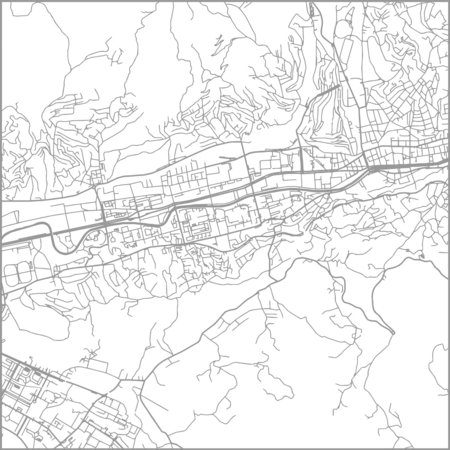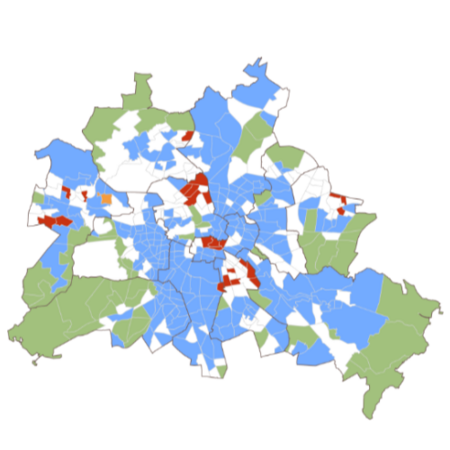Social area analyses: social mapping and social monitoring

Social rights for vulnerable groups in the Western Balkans (SoRi II)
The overall project objective is to improve the living conditions of disadvantaged groups in the five project countries Albania, Bosnia and Herzegovina, Kosovo, Northern Macedonia and Serbia. The project built on the SoRiI project (https://social-rights-balkan.org) and consisted of three task areas.
The focus of our task area (output 2) of the SoRi II project was the development of a "Leave No One Behind"-focused social mapping method including the development of a question catalogue and implementation of the questions in a data collection programme (KoBoToolbox) as well as the development and implementation of trainings (Trainings on LNOB Social Mapping).
July 2020 to June 2021
German Society for International Cooperation (GIZ) GmbH
RegioKontext GmbH (Projektleitung), Dr. Paul Hebes - Wissensbasierte Planung

Mapping of social services: Improving cantonal services in the Sarajevo Canton
Projektziel ist es, die Bedürfnisse der Bevölkerung im Kanton Sarajevo zu identifizieren, das Armutsrisiko und insgesamt die Lebensqualität zu erhöhen. Zur Untersuchung und Beschreibung der aktuellen Lage ist eine Befragung von ca. 12.000 Haushalten geplant. Die Haushaltsbefragung wird von einem lokalen Team realisiert, das von uns praxisorientiert beraten und begleitet wird.
Aufgrund der COVID-19-Pandemie ist die Durchführung der Studie nicht in dem geplanten Studiendesign möglich. Derzeit werden Alternativen geprüft (laufendes Projekt).
Dezember 2019 bis August 2021
Deutsche Gesellschaft für Internationale Zusammenarbeit (GIZ) GmbH
RegioKontext GmbH (Projektleitung), Dr. Paul Hebes - Wissensbasierte Planung

Monitoring Soziale Stadtentwicklung Berlin (MSS)
Das Monitoring soziale Stadtentwicklung Berlin (MSS) wird seit 1998 auf kleinräumiger Ebene durchgeführt. Die Fortschreibung auf Grundlage der Methodik von 2013 war das Projektziel für das MSS 2015 und 2017. Die Berechnungen anhand eines gestuften Indikatorensystems bildeten die Basis für die Charakterisierung der soziostrukturellen Situation in den (Planungs-)Räumen und zur Identifikation von Gebieten, die im Vergleich zu der gesamtstädtischen Lage, überdurchschnittlich von sozialer Benachteiligung betroffen waren (Ergebnisbericht MSS 2017).
MSS 2015 (10/2015 - 12/2015); MSS 2017 (10/2017 – 02/2018)
Senatsverwaltung für Stadtentwicklung und Wohnen, Berlin
RegioKontext GmbH (Projektleitung), Patrick Hausmann